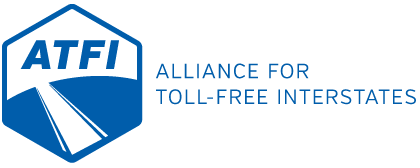By GSA Business
Our interstate system has facilitated an unrestricted supply chain of goods, services and people quickly and efficiently for the better part of 50 years. Interstates are indispensable infrastructure for every aspect of our economy, and critical for our competitiveness. For the general citizenry, these freeways determine quality of life. However, the state has no long-term plan for how to comprehensively fund maintenance and improvements.
We caution that some libertarians and policymakers are advocating placing tolls on existing interstate lanes, suggesting it is the political and funding panacea. In reality, as has been shown time and again, this notion of tolls as savior is fool’s gold and too costly for everyone.
Even if you can get past the compromised principle of paying for the same road twice — both with a fuel tax and a toll tax — there are other reasons why placing tolls on currently non-tolled interstate lanes will create costly inefficiencies in the supply chain.
First, tolls are expensive to administer, collect, and enforce, with costs sometimes reaching 33.5% of the revenue generated. Transportation is fundamental to the economy, and as such should not be taxed inefficiently. Compare that with the current cost to administer the gas tax, which is 1% of revenue generated, and it’s clear tolling is not cost effective, certainly not a “conservative” way to tax.
Second, its proven drivers, especially commercial fleets, avoid tolls by diverting onto secondary roads, leading to longer, less efficient routes with safety issues. Third, they are generally prohibited by federal law, although some think tanks and their private-sector funders want to change that. And finally, people simply hate tolls — unless they’re optional.
Some states have considered them. A 2009 study on the impacts of proposed tolls on Interstate 80 in Pennsylvania estimated shippers, truckers, and consumers would suffer a combined annual deadweight loss in the tens of millions of dollars per year just due to tolls. In North Carolina, projected traffic diversion from proposed tolls on Interstate 95 would have cost businesses along the corridor an estimated $1 billion in revenue over several decades due to toll-averse highway users bypassing their businesses along with the tolls.
Virginia, home to one of the largest ports in the United States, toyed with tolling existing lanes on I-95 as part of a transportation funding plan. Instead, the state passed a comprehensive transportation funding reform bill that included a provision effectively prohibiting I-95 tolls. They all realized punitive and inefficient toll charges, combined with diversion, would impact the whole supply chain. If South Carolina wants to keep I-95 “The Corridor of Shame,” toll it.
There is no question that the long-term sustainability of this network must be a priority, and growing states like South Carolina will have to accelerate investments, with the legislature and the DOT Commission making funding interstates their top priority.
Allowing states to balkanize, and in some cases even “monetize,” these public assets is bad public policy. It would also be a betrayal to those businesses and consumers who have established presences along a newly tolled corridor.
There are sensible, fair and cost-effective solutions that don’t unduly stifle growth and efficiency. But tolling existing lanes of interstates is not one of them.
There are reasons why no state has ever tolled existing lanes of interstate. We don’t need to go there.
J. Richards Todd is president and CEO of the S.C. Trucking Association.

